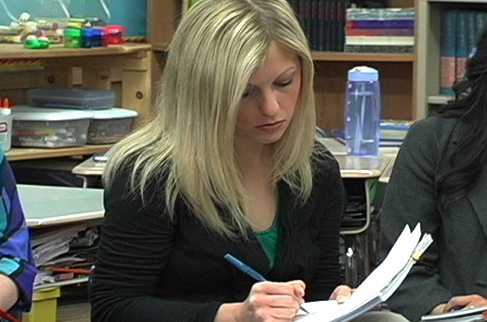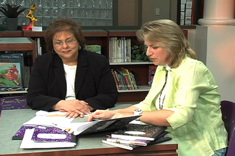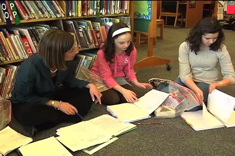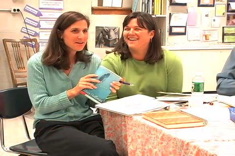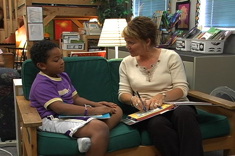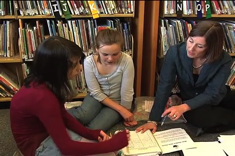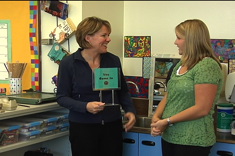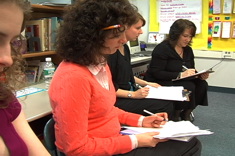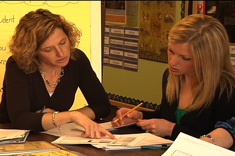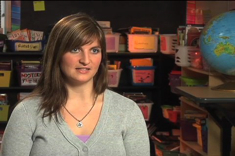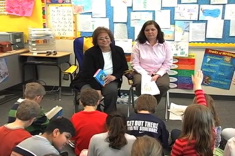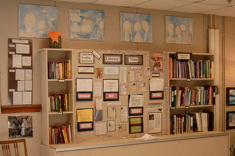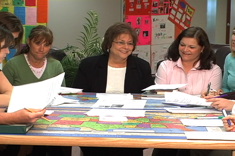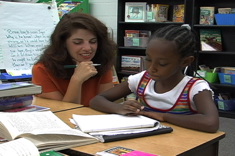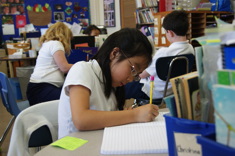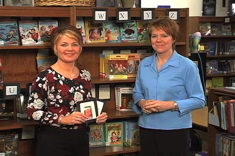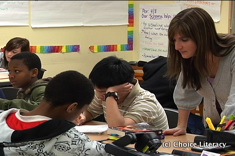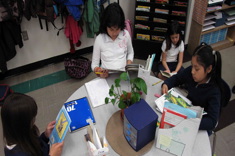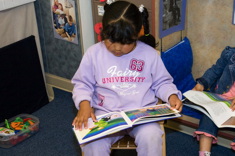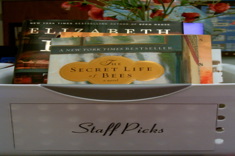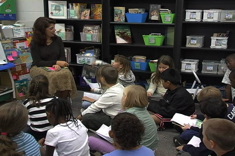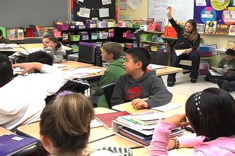Library
Choice Literacy Articles & Videos
The Choice Literacy library contains over 3,000 articles and 900 videos from 150+ contributors. Classic Classroom and Literacy Leadership subscribers have access to the entire library. Content is updated continuously, with five to six new features published each week.
Latest Content
Favorite Mentoring Quotes
If you're guiding the learning of others, you'll be inspired by these quotes.
Notetaking Series Part V: Getting Out of Notetaking Ruts
It's a quick journey from notetaking routines to notetaking ruts. This installment of the notetaking series focuses on ways to get out of the ruts that emerge naturally whenever any notetaking routine is established.
Memorable Students, Memorable Teachers: A Quick-Write Icebreaker for Teacher Workshops
This is a quick-write workshop activity that is especially suited to the more relaxed pace of summer professional development workshops, or first meetings with colleagues in the fall when everyone is refreshed and reflective.
Teacher/Principal Conferring: Reflecting on Readers’ Notebooks
In this conference, Principal Karen Szymusiak and 5th grade teacher Liz Cramer discuss the ways Liz uses readers’ notebooks in her classroom.
Running and Reading Logs
In this first video in a two-part series, Clare Landrigan meets with a group of fourth graders to talk about reading logs and goals. In this excerpt, Clare uses the analogy of how runners use logs to chart progress and set goals.
How Study Groups Are Like Self-Cleaning Ovens
With a few key elements in place, Brenda Power and Jennifer Allen explain how study groups can almost run themselves and get everyone involved.
Punctuation Quotes
Fun quotes to start discussions about punctuation for learners of any age.
“Hard” Reading Workshop: Understanding How Proficient Readers Comprehend Difficult Text
The Hard Reading Workshop is a terrific professional development activity for launching conversations about text difficulty and strategy instruction.
Literacy Coaching Interview Rubric
This rubric can help anyone interviewing for a literacy coaching position determine if there is a philosophical fit between their beliefs and the goals of the school. The rubric is also helpful for any school in the process of defining responsibilities for literacy coaches
Conferring with Colin
In this reading conference with Colin, Joan Moser (of “The Sisters”) helps him set a goal of working on accuracy.
Running and Reading Logs Part II
In this second video in a two-part series, Clare Landrigan meets with a group of 4th graders to talk about reading logs and goals. In this excerpt, Clare confers with students over their logs and debriefs with their teacher.
The Language of Coaching Part II: The Leading Edge
Jan Miller-Burkins explores the “how” of shifting language so that it is less judgemental in discussions with colleagues.
Notetaking Strategies Part I: “In the Midst” and “After the Fact” Notes
There is a difference between “in the midst” and “after the fact” notes, and different methods might work better in different observation contexts once you know your options.
New Teacher Conversations: Breaking Through Roadblocks and Sustaining Support
The roadblocks activity can easily be adapted for study groups looking at almost any topic.
Mentor Interviews — A Protocol of Questions
This series of over 30 questions for mentors or novice teachers can be used to plan a mentoring program, match mentors and novice teachers, or launch partnerships early in the fall.
Quick Take: Advice from Katie Doherty on Starting a Middle School Reading Workshop
In this one-minute quick take video, Katie Doherty has advice for middle school teachers who are thinking of launching a reading workshop in their classrooms.
Finding Words: Linking Community and Classrooms
Principal Karen Szymusiak and 3rd Grade Teacher/Literacy Coach Pam Hahlen do a quick word search activity using dictionaries donated to the classroom by a local service club.
Poets on Notebooks Quote Collection
Whether you love to read, write or teach poetry, these quotes will give you something to think about and inspire you.
On Board with Literacy Leadership
Wisconsin literacy coaches Jennifer Jones and Charity Meyer were inspired by Jennifer Allen’s “Literacy Room” to try out “Literacy News” resource boards in their schools. They provide helpful tips for starting these boards in your school, as a way to give continuous and timely support to teachers at any level.
Establishing a Routine for Notetaking
We close out the notetaking series with advice on setting notetaking goals.
Learning Curves and Dips: Planning and Goal-Setting for Writing Workshop
Aimee Buckner describes a simple summer planning and goal-setting process she uses to get ready for launching writer's workshop in the fall.
Rethinking Writing Centers
Shari Frost finds writing centers are beloved by many teachers and students. There’s only one problem – very little writing appears to be going on in the centers.
Bookroom Tours Part III
In this six-minute video, The Sisters (Gail Boushey and Joan Moser) give a tour of a “choice” bookroom. Unlike many bookrooms organized by level and maintained by teachers, this room of chapter books is organized by author.
Weekend Headlines: Introduction
In this first of a three-part video series, Katie Doherty and her sixth grade students begin the Weekend Headlines activity. Each Monday, students listen to Katie share some of the headlines from the local newspaper and then share their "headlines" from the weekend.
Two or Three Things I Know for Sure: A Teacher Workshop Activity
"Two or Three Things I Know for Sure" is a terrific short workshop activity for study groups or faculty meetings, and it also can be used in partnership discussions with mentors, literacy coaches, and colleagues. The activity gets everyone to explore their bedrock beliefs about teaching – as well as what it takes to change them.
What Are Reading Centers?
Kathy Collins gives a detailed definition of how reading centers are connected to the goals of different reading units of study.
Worth a Thousand Words: Teaching with Wordless Picture Books
Shari Frost and her literacy coaching colleagues explore together how wordless picture books can change the landscape of literacy teaching in K-6 classrooms throughout a school.
The Books We Can’t Live Without in Our Teaching: Resource Round-Up
Literacy experts share their well-loved and well-worn children's and professional books.
Old Elm Speaks Conclusion: Connecting Poetry, Observation, and Reading
In this second installment of a three-part video series, Aimee Buckner shows how observation skills, poetry, and reading instruction come together with the mentor text Old Elm Speaks by Kristin O'Connell George. In this final excerpt, students share what they wrote after browsing the book and completing some observations.
Weekend Headlines: Peer Response
In this second part of a three-part video series, Katie Doherty and her sixth grade students continue the Weekend Headlines activity. In this installment, Katie sets up a peer response procedure.
Browse Content By
Type
Category
- Assessment Tools
- Big Fresh Archives
- Booklists
- Choice Numeracy
- Classroom Design
- Common Core
- Community Building
- Conferring
- Content Literacy
- Digital Literacy
- English Language Learners
- Equity
- Family Relations
- Free Samples
- Guiding Groups
- Leadership
- Literacy Coaches
- Mentor Texts
- Minilessons
- New Teacher Mentors
- Podcasts
- Poetry
- Quote Collections
- Reading Strategies
- Self Care
- Struggling and Striving Learners
- Talking and Listening
- Teacher Study Groups
- Teaching Reading
- Teaching Writing
- Word Study and Vocabulary
Author
- Melissa Quimby
- Nawal Qarooni
- Gwen Blumberg
- Julie Cox
- The Lead Learners
- Hannah Tills
- Josie Stewart
- Ruth Metcalfe
- Mallory Messenger
- Becca Burk
- Jodie Bailey
- Vivian Chen
- Mary Brower
- Tiffany Abbott Fuller
- Stephanie Affinito
- Ruth Ayres
- Leigh Anne Eck
- Heather Fisher
- Shari Frost
- Julie Johnson
- Suzy Kaback
- Gigi McAllister
- Shirl McPhillips
- Melanie Meehan
- Cathy Mere
- Debbie Miller
- Tara Barnett and Kate Mills
- Tammy Mulligan
- Dana Murphy
- Bitsy Parks
- David Pittman
- Brenda Power
- Heather Rader
- Matt Renwick
- Mandy Robek
- Christy Rush-Levine
- Gretchen Schroeder
- Jen Schwanke
- Brian Sepe
- Katherine Sokolowski
- Stella Villalba
- Jennifer Vincent
Grade Level
Choice Literacy Membership
Articles
Get full access to all Choice Literacy article content
Videos
Get full access to all Choice Literacy video content
Courses
Access Choice Literacy course curriculum and training


